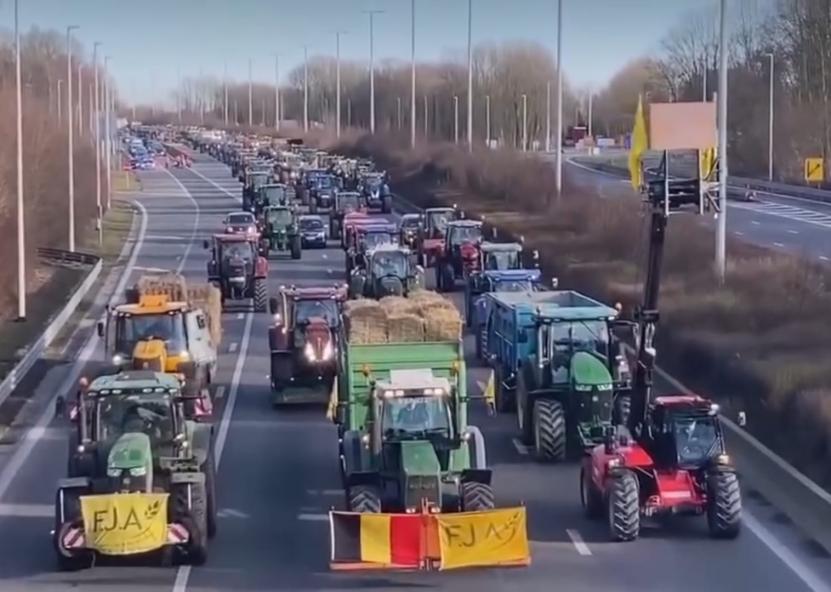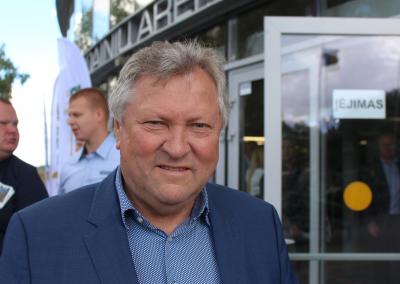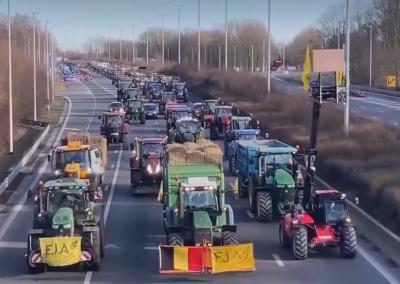EU countries agree on review of agricultural policy as tractors arrive in Brussels
European Union member states agreed on Tuesday to review stricter ecological requirements in the Common Agricultural Policy (CAP) in a bid to put an end to months of protests by farmers.
A special committee approved the revision, which will be discussed by agriculture ministers meeting in Brussels, as farmers swarmed into the European Quarter for the third time in two months, setting fire to tyres and bundles of coal and throwing pigs at riot police.
„Wešhavešlistened to our farmers and have taken swift action to address their concerns at a time when they are facing a multitude of challenges“ said the Minister of Agriculture of Belgium, which šs currently the EU presidency, David Clarinval.
The review aims to reduce the bureaucratic burden on farmers and allow more flexibility in the way organic farming rules are assessed, while maintaining high environmental standards, he said.
The Committee welcomed the European Commission's proposal to change certain environmental and climate standards that determine whether farmers are eligible for CAP subsidies.
One of the most important changes – farmers who fail to meet CAP requirements due to extreme weather conditions will be given freedom. EU farmers will no longer be required to leave part of their farmland fallow - a measure that aims to protect soil and promote biodiversity, but about which farmers are very concerned. But they will still be encouraged to do so.
Member States would have more flexibility in deciding which soils to protect and at what time of the year, and they could diversify and rotate crops. In addition, farms smaller than 10 hectares would no longer be subject to checks and fines related to CAP compliance.
In almost all EU countries, farmers are staging mass protests against what they say are overly strict environmental rules. These concessions come less than three months before the European Parliament elections. Polls show that the vote will boost support for regional parties, which are focusing their election campaigns on farmers' discontent.














































































































